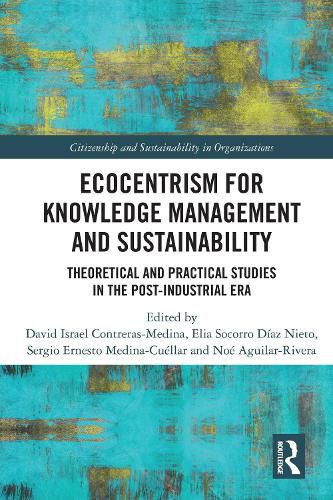Readings Newsletter
Become a Readings Member to make your shopping experience even easier.
Sign in or sign up for free!
You’re not far away from qualifying for FREE standard shipping within Australia
You’ve qualified for FREE standard shipping within Australia
The cart is loading…






Through theoretical-practical studies, this book explains the foundational concepts of ecocentrism, knowledge management, and sustainability and advances the understanding of how ecocentric paradigms can be leveraged for the process of knowledge management and knowledge creation, showcasing various applications of this practice and illustrating advantages and disadvantages of adopting an eco-centric approach. With a focus on the three themes of sustainability, knowledge management, and ecocentrism, this edited volume presents practical case studies from various organizational contexts, illustrating how sustainability-related practices make use of knowledge management to meet their business objectives from an ecocentric perspective and highlighting the transversal application of this approach to various types of contexts. The book also addresses cases of how post-industrial organizations of the 21st century are using knowledge management in advancing the Sustainable Development Goals with reflections on ecocentrism. There is practical, theoretical, and methodological content, making this valuable to researchers, academics, and advanced students in the fields of knowledge management, sustainability, organizational studies and strategic management.
$9.00 standard shipping within Australia
FREE standard shipping within Australia for orders over $100.00
Express & International shipping calculated at checkout
Through theoretical-practical studies, this book explains the foundational concepts of ecocentrism, knowledge management, and sustainability and advances the understanding of how ecocentric paradigms can be leveraged for the process of knowledge management and knowledge creation, showcasing various applications of this practice and illustrating advantages and disadvantages of adopting an eco-centric approach. With a focus on the three themes of sustainability, knowledge management, and ecocentrism, this edited volume presents practical case studies from various organizational contexts, illustrating how sustainability-related practices make use of knowledge management to meet their business objectives from an ecocentric perspective and highlighting the transversal application of this approach to various types of contexts. The book also addresses cases of how post-industrial organizations of the 21st century are using knowledge management in advancing the Sustainable Development Goals with reflections on ecocentrism. There is practical, theoretical, and methodological content, making this valuable to researchers, academics, and advanced students in the fields of knowledge management, sustainability, organizational studies and strategic management.